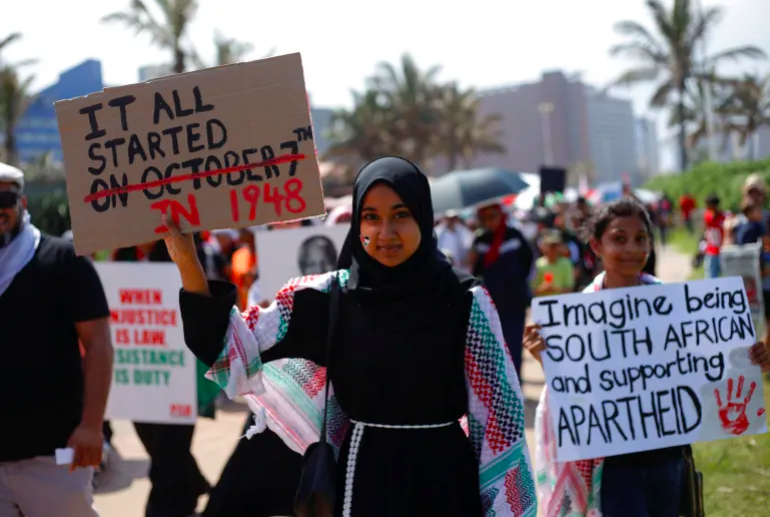
Published 06/18/2024 15:23 | Edited 06/18/2024 17:41
In January this year, South Africa, led by the African National Congress (ANC), took Israel to the International Court of Justice (ICJ) over allegations of genocide in Gaza. The move drew applause from several nations in the Global South, but found more muted support among the country’s political parties. The Democratic Alliance (AD), the CNA’s main rival and with a right-wing tendency, initially opposed the measure, while the populist Patriotic Alliance (AP) classified the action as a “joke”.
Five months later, South Africa’s political landscape changed with the formation of a coalition government. The ANC, which fell short of a majority in the May elections, formed an alliance with the AD, AP and the Inkatha Freedom Party (PLI). This new configuration raises concerns about possible changes in the country’s foreign policy towards Israel and Palestine.
Necessary commitments
Although the ANC insists it will not change its stance in support of Palestine, analysts believe the coalition could lead to internal compromises. For months, South Africa has been at the forefront of global efforts to hold Israel accountable for the attacks on Gaza, which resulted in the deaths of more than 37,000 people. Now, the need for consensus within the coalition could change the country’s approach.
The AD and PLI sought to maintain a neutral stance regarding the conflict, while the AP expressed support for Israel. The coalition agreement includes a clause on foreign policy, based on human rights, constitutionalism, national interest, solidarity and peaceful resolution of conflicts.
Reactions and statements
ANC secretary-general Fikile Mbalula said the party’s foreign policy will not change, calling suggestions of a possible retreat “misleading and populist”. He emphasized that support for Palestine was not an electoral stance, but a historical solidarity deeply rooted in the country’s struggle against apartheid.
The AD, which initially supported Israel, adopted a more moderate stance, calling for peace. During the election period, the ANC criticized the DA for its stance on the war in Ukraine, accusing it of having double standards by not supporting Palestine in the same way.
Impact on the ICJ and the future of foreign policy
Israel’s presence at Ukrainian President Volodymyr Zelenskyy’s global peace summit in Switzerland, where South Africa rejected the final communique due to Israeli participation, highlighted internal tensions over the issue. Sydney Mufamadi, national security adviser, criticized Israel’s presence, citing recent UN findings on war crimes.
Experts estimate that the CNA will have to compromise its government actions, possibly reverting to a more neutral position. South Africa’s ICJ case, which accuses Israel of genocide, could be affected by the coalition, which requires sufficient consensus to make decisions.
South Africa’s new coalition government represents a significant challenge to the ANC’s continued foreign policy towards Israel and Palestine. While the party insists on maintaining its position of support for Palestine, the need for internal consensus could force compromises, impacting the country’s leadership in global efforts to hold Israel accountable for the attacks on Gaza. The future of South African foreign policy will depend on the ANC’s ability to navigate the complex dynamics of the coalition government.
Source: vermelho.org.br

